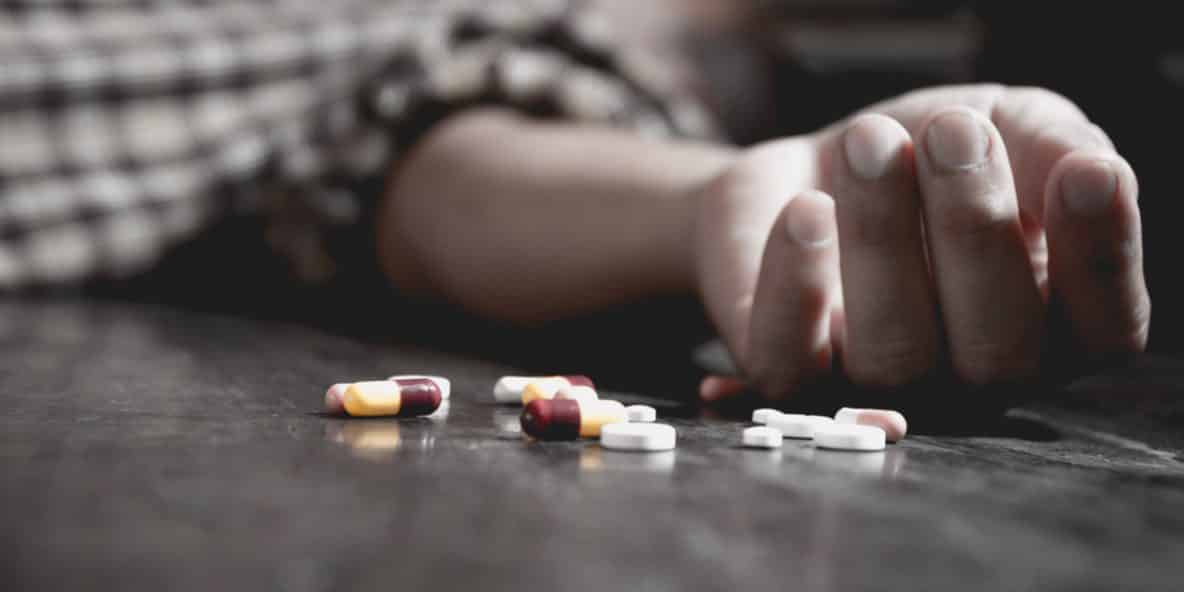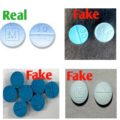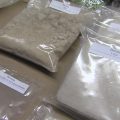International Overdose Awareness Day is a global event held on 31 August each year and aims to raise awareness of overdose and reduce the stigma of a drug-related death. It also acknowledges the grief felt by families and friends remembering those who have died or had a permanent injury as a result of drug overdose. International Overdose Awareness Day spreads the message that the tragedy of overdose death is preventable.
You may have experienced a drug overdose or know someone who has. An overdose is actually a brain injury resulting from a lack of adequate oxygen flow. In most cases, overdoses are not intentional. You may not think that recreational drug use will lead to an overdose, but it can happen to anyone who is using drugs, anytime they use. Knowing the signs of a drug overdose and what to do when an overdose occurs can save a life.
Every time you use a drug, you are carrying the risk of serious side effects or overdose. Overdoses can happen with all types of drugs, including cocaine, heroin, alcohol, etc. Accidental overdoses occur when users consume too large an amount of either prescription medication or illegal drugs. Intentional overdoses are typically a result of someone trying to commit suicide. The losses that families and loved ones experience when an addict overdoses are vast and traumatic.
Common Drug Overdose Symptoms
The exact signs of a drug overdose will vary from person to person, as different drugs and varying body chemistry can result in a variety of overdose symptoms. Common signs that someone is experiencing a drug overdose include:
Rapid heartbeat
Increased body temperature
Chest pain
Dilated pupils
Difficulty breathing
Cessation of breath
Gurgling sounds (which indicate airway obstruction)
Blue fingers or lips
Nausea
Vomiting
Confusion
Violent behavior
Aggression
Dizziness
Seizures
Unconsciousness
A person may not experience all of these signs, but even a few of these symptoms can indicate a person is experiencing an overdose.
Heroin Overdose Symptoms
Heroin is a dangerous opiate that carries risks of overdose every time it’s used. Signs of opioid overdose and heroin overdose include:
Slowed or shallow breathing
A sleepy or ‘out of it’ appearance
Nodding off and sleeping
Blue lips or fingertips and nails
Weakened pulse
Dry mouth and small pupils
Confusion and lethargy
Choking sounds or coughing when sleeping
Unresponsiveness
Heroin overdose symptoms can be frightening, and they can be deadly if the overdose progresses without treatment. If someone is overdosing on opioids such as heroin, fentanyl, or carfentanil, get them treatment right way by calling 911 and administering naloxone.
Alcohol Overdose Symptoms
Alcohol is another dangerous depressant that carries frightening overdose signs. Alcohol overdose, also known as alcohol poisoning, carries specific signs and symptoms that can be incredibly dangerous for the person who is overdosing on alcohol.
Key signs of alcohol overdose include:
Increased aggression
Impairment of motor skills
Severe speech impairment
Blackouts or passing out
Vomiting and seizures
Slow heart rate
Slow or irregular breathing
Dulled responses, including no gag reflex
Inability to remain conscious or wake up
Low body temperature
Blue skin or increased paleness
The above symptoms of alcohol overdose, as reported by the National Institute on Alcoholism, typically work on a scale of intensity. The key signs of alcohol overdose, such as confusion or motor skill impairment, may begin slowly. But as the alcohol overdose progresses and the body continues to process the existing alcohol within, the symptoms can get worse. If a person continues to drink as they are already beginning to overdose on alcohol, the situation can become tragic quickly.
When someone is overdosing on alcohol, the best thing to do is to stop drinking. If the overdose symptoms become frightening or the person is showing signs of irregular or slowed breathing, it’s crucial to call 911. Someone who is overdosing on alcohol should never be left alone to ‘sober up,’ as they can quickly encounter a medical emergency.
Signs of Cocaine Overdose
Cocaine is a stimulant that carries additional dangers of overdose. The drug is used in a variety of ways, and all ingestion methods impact the risk of overdose. Cocaine overdose symptoms include:
Chest pain
Breathing difficulties
Increased body temperature
Rapid heart rate
Abnormal heart rhythm
Increased sweating
Tremors
Kidney Damage
Seizures
Anxiety and panic
Hallucinations
Confusion and Delirium
When these cocaine overdose symptoms are present, it’s important to seek medical help for the person who is overdosing on cocaine or crack cocaine. Cocaine overdose can be reversed by medical professionals who will administer the necessary medications to treat the life-threatening cocaine overdose symptoms.2
What to Do if Someone Overdoses from Drugs or Alcohol
If you are present when someone is experiencing an overdose, the first and most important thing is that you remain calm. Panicking will not help. You can help someone who is experiencing overdose symptoms by:
- Calling 911, this should be the first thing you do
- Ask the person questions to keep them awake
- If they’re not breathing, turn them on their side
- Give first aid as directed by 911 until help arrives
- If they are overdosing on opioids, safely administer NARCAN if it’s available
- If you’re qualified to do so, perform CPR until help arrives
Never allow the individual to continue using the substance they have overdosed on. Additionally, be wary of immediate results of NARCAN. While NARCAN can offset the effects of opioid overdose, it should not be used in lieu of professional medical care, and it is important that a person still receive emergency services even if they “wake up” after receiving the medication. They are still at risk for respiratory failure and professional care is necessary.
While waiting for emergency services to arrive, obtain as much information as possible, including the dose, time of last dose and type of drug the person used so that first responders can treat him or her accordingly. If prescription medications or other labeled substances have been used, take the container with you to the ER, even if the bottle is empty. Assure the person that help is on the way and continue to stay calm.
When to Call 911 During a Drug Overdose
When signs of overdose are present, you may be worried that you’ll get in trouble for calling the paramedics or getting help for yourself or someone near you who is overdosing. Though it’s illegal to use and possess many illicit drugs, paramedics, police officers, and other personnel are more concerned with keeping the overdosing person alive.
How to Intervene During an Overdose
Understanding what to do if someone overdoses from drugs can help save lives. Americans are more likely to die from a drug overdose than from a car crash, making overdoses one of the most preventable causes of death in the United States.During a drug overdose, witnesses can intervene by reaching out for help. The best thing to do is call 911. If someone is overdosing on opioids, administering naloxone can save their life. When an overdose is happening, make sure the person who is overdosing stops using drugs or alcohol immediately. Call 911 and follow the instructions the 911 operator gives you.
Life After Overdose
If you or someone you love has overdosed, it’s a clear sign that addiction has become a major problem. The only way to safely avoid a future overdose is to get sober with the professional help of a drug and alcohol treatment center.





